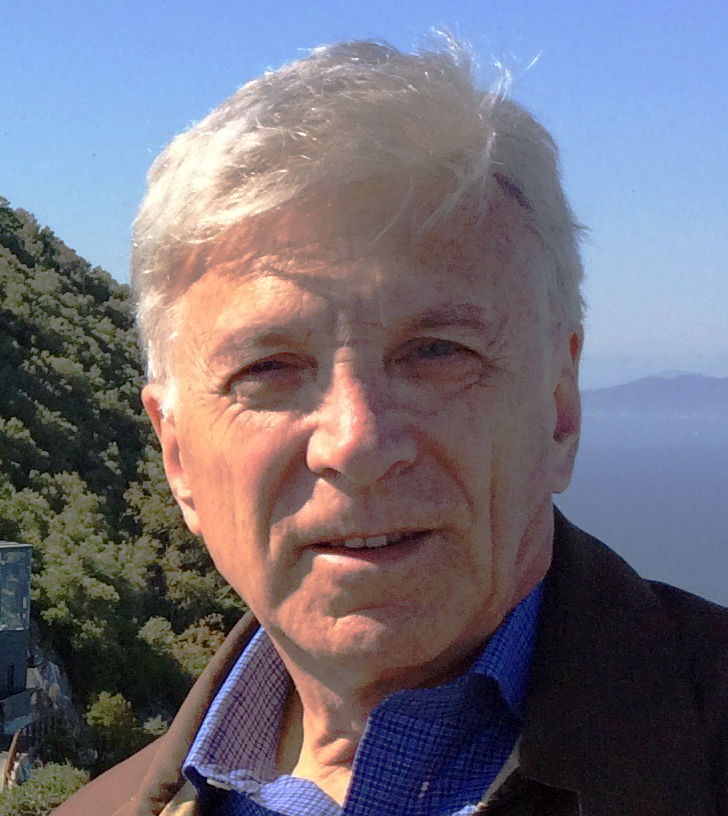
Ayn Rand once remarked to me that an event doesn’t become part of history until 50 years have passed.
It’s now been 50 years since the Workshops on Objectivist Epistemology were held. The Workshop comprised five meetings from 1969 through 1970 during which professionals in philosophy and related fields had the extraordinary opportunity to question Ayn Rand in great detail on her Introduction to Objectivist Epistemology.
The tape recordings of those sessions, which were hosted by the Foundation for the New Intellectual (now terminated in favor of the Ayn Rand Institute), supplied the basis for the 200 page Appendix I edited for the 2nd edition of ITOE. The full recordings are in the Archives of the Ayn Rand Institute.
None of the participants asked for anonymity regarding the Appendix, but neither did I contact all of them to secure their permissions to be named and quoted, so I thought it best to use the identifiers “Prof. A,” “Prof. B,” etc. Some questions were asked by attendees who were classed as “auditors,” though they were given a few opportunities to ask a question or two.
There were only five full participants, if I recall correctly: Leonard Peikoff, George Walsh, John O. Nelson, Allan Gotthelf, and me. The rest were “auditors” or “guests.”
“Auditor” is not quite the right term, because they were each given the opportunity to ask a question late in the sessions, but I can’t think of a better term. The people I list below as auditors were those who asked a question that I included in the Appendix; there were probably a few others, but either they didn’t ask a question or I didn’t include any of their questions in the Appendix.
Of the full participants, three held the academic rank of “Professor,” two of “Instructor.” The auditors, I think, were all graduate students. So, “Prof.” was a device I used, rather than a description of their academic titles.
Also attending as guests were: a lawyer who was a Foundation trustee and his wife, George Reisman, and Frank O’ Connor. The group met in a hotel conference room, and we sat around a big, oval conference table, the guests sitting against the side walls.
The first session lasted 12 hours! Subsequent sessions were shorter, but still the total time was 21 hours. A full transcript would have run about 600 book pages.
Not everyone attended every session. Sessions 4 and 5 were quite different. They were not about ITOE or epistemology; one was on metaphysics and one on ethics/politics. These two final sessions were much smaller events, held in Ayn Rand’s apartment, and there were only three questioners: Leonard Peikoff, George Walsh, and Allan Gotthelf. I was not invited.
The assignment of letters for the names had no special significance: I used “Prof. A” for the first person quoted in the Appendix, “Prof. B” for the second, and so on.
As noted in my editor’s preface to the Appendix, I did some re-arranging of questions: they are presented in logical order, not the chronological order in which they were asked.
For the first three sessions, there was a different “main questioner,” who had the floor for an hour or two; then others took turns. Thus, my re-arrangement of questions did not interrupt any flow; each new questioner asked about whatever topic he was interested in, rather than continuing from where the previous questioner left off.
A happy result of putting the questions into a logical order was that my question on the nature of the whole theory was the one that needed to go first. So I am “Prof. A.”
Here is the complete list of the participants included in the Appendix.
Prof. A: Harry Binswanger. Then a doctoral candidate in philosophy at Columbia University and Part-Time Instructor in philosophy at Brooklyn Polytechnic Institute.
Prof. B: Allan Gotthelf. Doctoral candidate in philosophy at Columbia University and full-time Instructor in philosophy at Wesleyian University in Connecticut. Dr. Gotthelf went on to become, among many other accomplishments, a founder and longtime head of the Ayn Rand Society, a professional organization affiliated with the American Philosophical Association.
Prof. C: Nicholas Bykovetz. Graduate student in physics, who is now in the physics department of Temple University.
Prof. D: John Nelson. Nelson was then in his 50s, I believe, and was in the philosophy department of the University of Colorado, Boulder. His article “The ‘Freedom’ of the Hippie and the Yippie” was published in The Objectivist.
Prof. E: Leonard Peikoff, who needs no identification for this audience.
Prof. F: George Walsh. Then in his late 40s or early 50s, Prof. Walsh was in the philosophy department of Hobart and William Smith Colleges in Geneva, NY.
Prof. G: Fred Weiss. Graduate student in philosophy at the University of Wisconsin, Mr. Weiss went on to create and run The Paper Tiger, a niche publisher.
Prof. H: Mike Berliner. Doctoral candidate in philosophy at Boston University, where he also taught. Dr. Berliner became the first Executive Director of the Ayn Rand Institute (1985 – 2000).
Prof. I: Gary Lachmund. Then a graduate student in mathematics, Mr. Lachmund later went into banking.
Prof. J: John Allen. Graduate student in philosophy.
Prof. K: Albert Jakira. Graduate student in philosophy. Mr. Jakira ran an Objectivist study group in New York City in the 1990s.
Prof. L: Tony Plasil. Graduate student in philosophy at the University of Wisconsin.
Prof. M: Laurence Gould. Graduate student in physics, now in the physics department of the University of Hartford.

